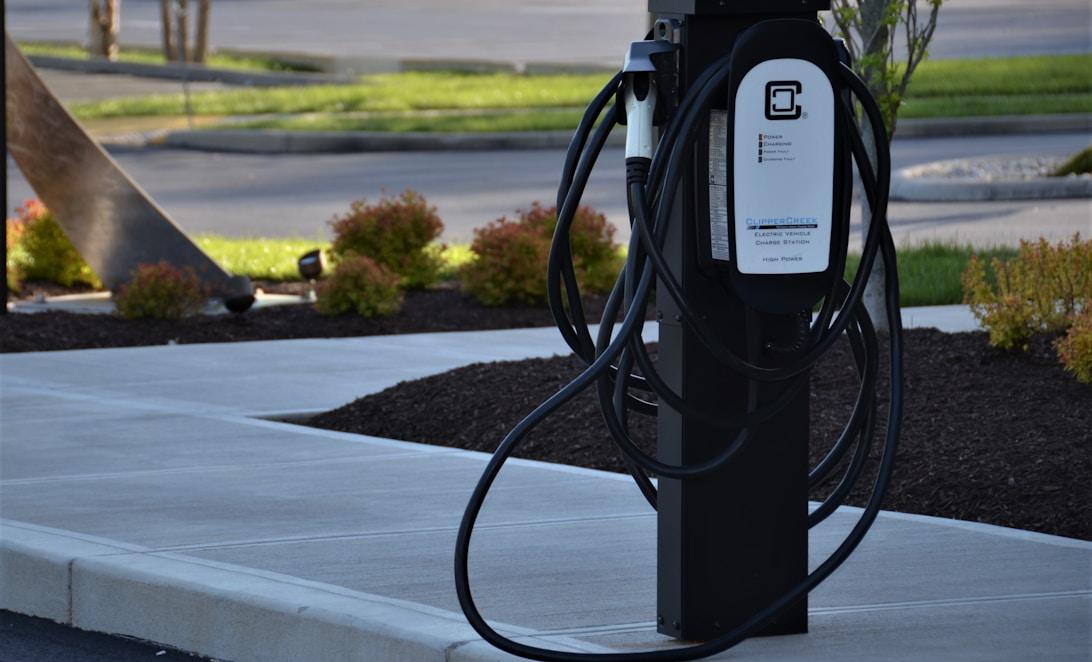
The Icelandic government has set an ambitious goal to achieve energy transition in the country by 2040, and to become independent of fossil fuels by that year. Iceland is not alone on this journey, and other countries are also making significant progress in the energy exchange. Iceland is at the forefront of this development, and is in a good position to become one of the first countries to completely stop the use of fossil fuels, thus setting an example for the rest of the world in tackling climate issues.
Energy transition in road transport has started rapidly in Iceland in comparison to other countries. As a sign of that, the percentage of electric cars in the national passenger car fleet has gone from less than 1% to 9% in just five years. Despite this, there is still a long way to go before a full energy exchange is achieved, and various challenges must be met and overcome along the way.
Charging infrastructure needs to be more widespread
One of the biggest challenges of the energy transition in transport is making electric car ownership more common across the country. The development of the last few years shows that such a change has so far mostly taken place in the capital area and in the surrounding municipalities that belong to the same business area. One of the key issues is to promote EV charging infrastructure, especially in rural areas and tourist destinations. However, great progress has been made in recent years. For example, in 2018, driving the ring road with an electric car became a more realistic option when a fast charging station was opened at Mývatn, and with it, the distances between all charging stations on the ring road became within the range of electric cars.
Since then, the number of charging points has continued to increase, making the use of electric vehicles easier across the country. Despite this, it is clear that further development of charging infrastructure is still needed to support the continued increase in the number of electric cars.
Electric cars will be available to everyone
History shows that when it comes to the introduction of technological changes, the highest income groups of society have been at the forefront, and this has also been the case when it comes to the electrification of the Icelandic car fleet. Information from the National Statistics Office shows that among single people, 64% of electric cars were owned by the three highest income deciles. For joint taxpayers, that is couples, the percentage was 54%. The percentage then decreases according to income groups, and for the three lowest income groups it was 11% for individuals and 15% for joint taxpayers. As a result, making electric car ownership more common among other drivers in this country is certainly one of the challenges we face.
This suggests that, so far, economic factors are influential to individuals' ability to switch to electric vehicles. However, it can be assumed that this influence will lessen as the price of electric cars falls and more used electric cars enter the market.
Increasing the supply of used electric cars is important
The availability of used electric cars affects the possibility of lower income groups to switch to electric cars. In order for lower income groups to be able to participate in the energy transition, it is important that there is a constant supply of used electric cars rather than cars that run on fossil fuels. The energy transition did not begin in earnest until the last three to four years. As a result, most electric cars on the streets are recent, and therefore there is a small supply of used cars. In the coming years, however, it can be assumed that some of those who have bought new electric cars will start thinking about renewal. It can therefore be assumed that the supply of used electric cars will increase little by little in the coming years.
In the first ten months of 2023, almost half of all newly registered passenger cars were owned by car rental companies. The electrification of car rental fleets is therefore also an important factor in ensuring the supply of used electric cars rather than the supply of vehicles that run on fossil fuels. That is because a large part of used cars for sale in this country are two to three year old passenger cars from rental fleets. As these companies increase the percentage of electric vehicles in their fleets, the availability of cheaper, used electric vehicles is likely to increase. Energy conversion at car rentals could thus contribute to electric car ownership becoming more common.
Adaptation of systems is also important
In addition to these factors, it is clear that the Icelandic regulatory framework and various systems need to be adapted to the changing conditions resulting from the energy transition. Among them is the charging of traffic fees which cover the financing of the development and maintenance of road infrastructure. To ensure easy and safe transportation for a future where most cars will be powered by electricity, it is necessary to move away from financing based on the use of fossil fuels.
In many respects, Iceland is supplied with better conditions than other countries to start adapting the financing of road infrastructure to the energy exchange. In addition to being at the forefront of the energy exchange, it helps that Iceland is an island that has no roads that cross borders. The Icelandic government is going to be among the first countries to start this adjustment.
Our roads to the future
Roads to the Future is an information site concerning the implementation of a new unified system designed to charge for the use of road transport. The website uses data from The Icelandic Transport Authority, Statistics Iceland, the Ministry of Environment, Energy and Climate, the Icelandic Road and Coastal Administration, and the Ministry of Finance and Economic Affairs.